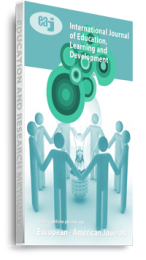This study focused on effects of two teaching methods on achievement of senior secondary two students in difficult chemistry concepts in Benue State, Nigeria. Two difficult concepts investigated were electrolysis and rate of chemical reaction. Two research questions were answered and two null hypotheses were tested. The study was a quasi-experiment, pretest posttest control group design. The target population was all senior secondary two (SS2) students in Benue State of Nigeria. A sample of 122 students was selected from104 accredited governments and government grant – aided schools in Benue State by purposive and random sampling techniques. Three intact classes were used and members constitute the sample. Chemistry Achievement Test (CAT) was used for data collection. The instrument was validated by experts in the course of the study. The reliability estimate of the instrument was established through trial testing. The data obtained using CAT were subjected to analysis using Kuder Richardson (KR-21). The reliability coefficient of CAT was 0.98. Mean and standard deviation were used to answer the research questions and the hypotheses were tested at using 0. 05 level of significance using ANCOVA. The findings of the study revealed that there is significant difference in the mean chemistry achievement scores of students taught electrolysis and rate of chemical reaction using assertive questioning, prior knowledge and those taught using conventional strategies. However, there is no significant difference in the mean chemistry achievement scores of students taught electrolysis and rate of chemical reaction using assertive questioning strategy and prior knowledge teaching strategy but significant difference exist between each experimental strategies(that is, assertive questioning and prior knowledge of behavioural objectives) and conventional strategy. There is no significant difference in the mean chemistry achievement scores of male and female students taught electrolysis and rate of chemical reaction using assertive questioning teaching strategy as well as in the mean chemistry achievement scores of male and female students taught electrolysis and rate of chemical reaction using prior knowledge of behavioural objective teaching strategy. There is no significant interaction effect of methods and gender on students’ achievement in difficult chemistry concepts (electrolysis and rate of chemical reaction). The study recommended among others, that teachers should be encouraged to use assertive questioning and prior knowledge of behavoural objective as methods of instruction in electrolysis and rate of chemical reaction.

